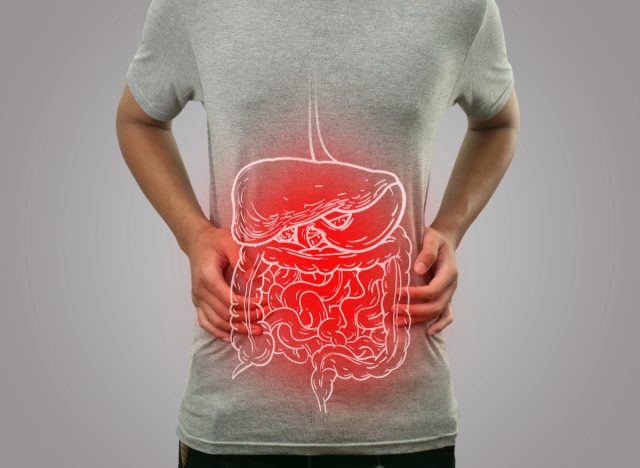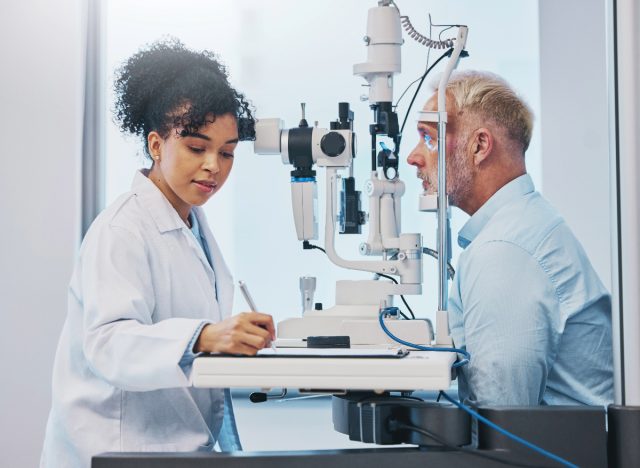What Happens to Your Body When You Eat Figs

From their introduction to the New World by missionaries in the 1500s to their planting in various places throughout California in the 1700s, figs bring an ancient sweetness to the table—with a myriad of health benefits, of course. Although figs can be used to satisfy your sweet tooth, dried or fresh, these fruits can benefit your body in more ways than one.
Here are some of the ways figs can positively aid your body’s health, and for more healthy eating tips, check out these 9 Healthy Eating Habits to Live Over A Century, Say Dietitians.
Figs can help lower cholesterol.

Figs have a healthy dose of soluble fiber. About four dried figs provide 100 calories and four grams of fiber, which is 14% of the daily recommended amount. Eating foods, like figs, with soluble fiber has been shown to help decrease cholesterol.
Figs can help fight inflammation.

Figs contain phytonutrients, or natural plant compounds, called polyphenols and carotenoids. Both act as antioxidants and help scavenge free radicals. These antioxidants also help fight inflammation.
Figs may help with glucose control.

Research has found that figs contain a compound called ABA (abscisic acid) that has been shown to enhance the peripheral intake of glucose and pulls glucose into the body independent of insulin. The fig extract used in the research equates to about 1 1/2 servings of figs.
Your body will get more nutrients it needs.

About four figs provide 100 calories and 6% of your daily recommended amount of potassium, as well as with 4% of the daily recommended amount of both calcium and iron. Potassium and calcium are nutrients identified by the 2020-2025 Dietary Guidelines for Americans as lacking in the American diet. As such, eating figs is a means to your body getting more of the nutrients it’s commonly lacking.
In addition, figs also provide magnesium. Magnesium, calcium, and potassium all play a role in cardiovascular health.
Figs can help prevent cancer.

Figs provide polyphenols and carotenoids, which are two phytonutrients, found to help detoxify carcinogens that can lead to cancer. These two phytonutrients also help repair DNA and other tissue damage.









